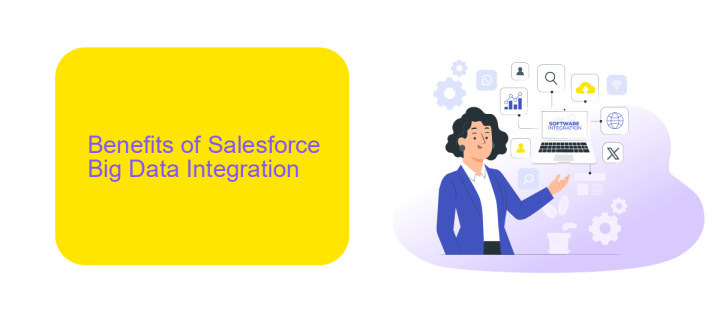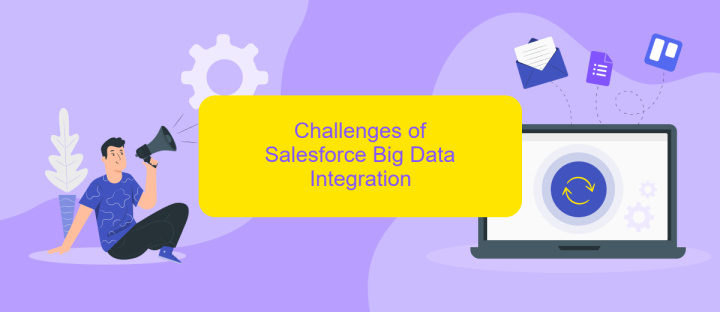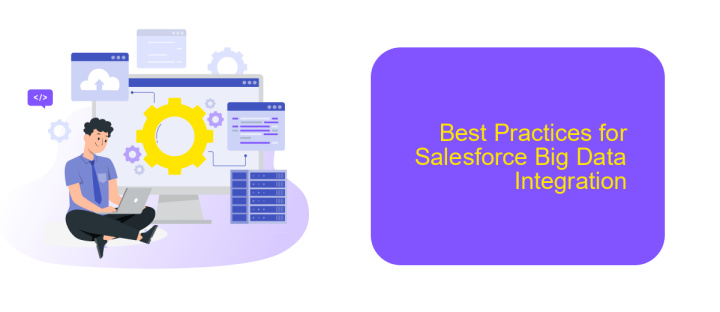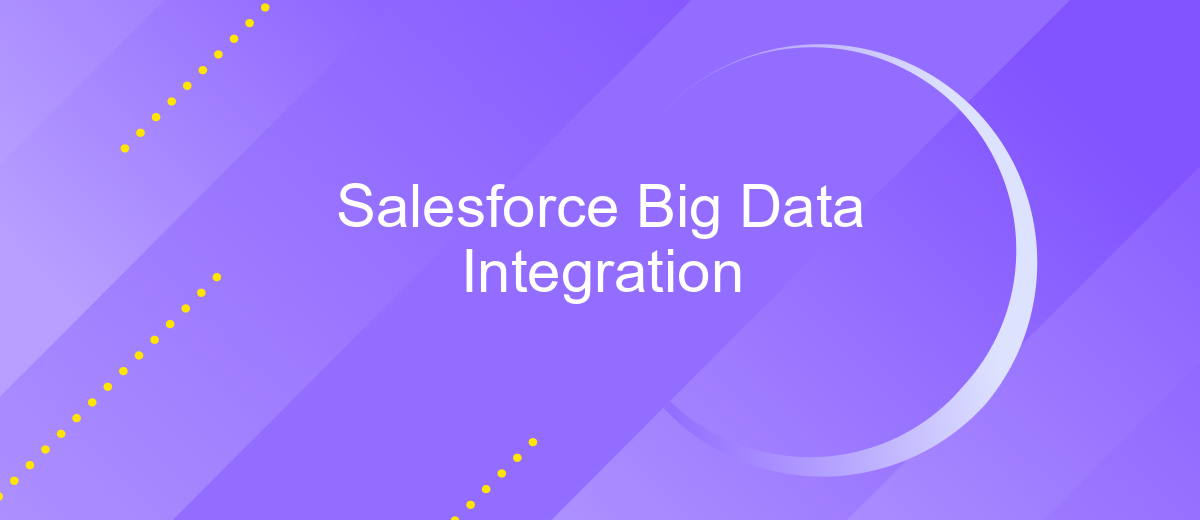Salesforce Big Data Integration
In today's data-driven world, integrating big data with Salesforce has become crucial for businesses aiming to harness the full potential of their customer insights. Salesforce Big Data Integration enables companies to seamlessly combine vast amounts of data from various sources, providing a comprehensive view of customer behavior and driving more informed decision-making. This article explores the key benefits and strategies for effective integration.
Introduction
Salesforce Big Data Integration is a crucial aspect for businesses aiming to leverage their data for better decision-making and enhanced customer experiences. Integrating Salesforce with big data platforms enables organizations to harness the power of data analytics, providing insights that drive strategic initiatives and operational efficiencies.
- Streamlined data flow between Salesforce and big data platforms
- Enhanced data analytics and reporting capabilities
- Improved customer segmentation and targeting
- Real-time data synchronization and updates
One of the effective tools for setting up these integrations is ApiX-Drive, which offers seamless connectivity between Salesforce and various big data services. By using ApiX-Drive, businesses can automate data transfers, ensuring that their Salesforce data is always up-to-date and ready for analysis. This integration not only saves time but also reduces the risk of manual errors, making it an invaluable asset for any data-driven organization.
Benefits of Salesforce Big Data Integration

Integrating Salesforce with Big Data offers numerous benefits, enhancing both data management and decision-making capabilities. By merging Salesforce’s CRM functionalities with Big Data analytics, businesses can achieve a more comprehensive view of their customer base. This integration enables the processing of vast amounts of data in real-time, leading to more accurate insights and improved customer service. Additionally, it helps in identifying trends and patterns that can drive strategic business decisions, ultimately leading to increased efficiency and profitability.
One of the key advantages of Salesforce Big Data integration is the ease of setting up and managing these integrations with tools like ApiX-Drive. ApiX-Drive simplifies the process by offering seamless connectivity between Salesforce and various Big Data platforms. This allows businesses to automate data flows and ensures that all relevant information is synchronized across systems without manual intervention. As a result, companies can focus more on leveraging data insights rather than dealing with the complexities of integration, thus optimizing their operational workflows.
Challenges of Salesforce Big Data Integration

Integrating Salesforce with Big Data presents several challenges that organizations must navigate to ensure seamless data flow and optimal performance. The complexity of managing and synchronizing vast amounts of data across multiple platforms can be daunting.
- Data Volume: Handling large volumes of data requires robust infrastructure and efficient data processing capabilities.
- Data Quality: Ensuring data accuracy and consistency is critical to avoid discrepancies and maintain reliable insights.
- Real-Time Processing: Achieving real-time data integration demands advanced tools and technologies to process and update data instantaneously.
- Security: Safeguarding sensitive data during integration is paramount to prevent breaches and ensure compliance with regulations.
- Compatibility: Ensuring compatibility between Salesforce and other Big Data platforms can be challenging due to differing data formats and protocols.
Services like ApiX-Drive can simplify the integration process by providing automated workflows and seamless connectivity between Salesforce and various Big Data platforms. By leveraging such tools, organizations can overcome these challenges and achieve efficient, secure, and real-time data integration.
Best Practices for Salesforce Big Data Integration

When integrating Salesforce with big data solutions, it is crucial to follow best practices to ensure seamless data flow and optimal performance. Start by clearly defining your integration objectives and understanding the data requirements of both systems involved. This will help in designing a robust integration strategy that meets your business needs.
Next, choose the right tools and technologies to facilitate the integration. ApiX-Drive is an excellent service that simplifies the process of connecting Salesforce with various big data platforms. Its user-friendly interface and extensive range of connectors make it easier to automate data transfers and maintain data integrity.
- Ensure data quality by setting up validation rules and data cleansing processes.
- Implement robust security measures to protect sensitive information.
- Monitor and optimize data flow regularly to prevent bottlenecks.
- Utilize incremental data loading to minimize system load and improve efficiency.
Finally, maintain thorough documentation of your integration processes and configurations. This will not only aid in troubleshooting but also ensure that future updates or modifications can be handled smoothly. By following these best practices, you can achieve a successful Salesforce big data integration that drives valuable insights and business growth.
Conclusion
Integrating Salesforce with Big Data solutions is a transformative approach that enables organizations to harness the power of data-driven insights. By connecting Salesforce with various data sources, businesses can enhance decision-making, improve customer experiences, and drive operational efficiencies. The seamless integration of these systems ensures that data flows smoothly, providing a comprehensive view of business metrics and trends.
Tools like ApiX-Drive simplify the integration process by automating data synchronization between Salesforce and other platforms. This reduces the need for manual intervention and minimizes errors, allowing teams to focus on strategic initiatives. As businesses continue to evolve, leveraging such integrations will be crucial for staying competitive and responsive to market changes. Ultimately, the successful integration of Salesforce with Big Data platforms can lead to smarter business strategies and sustained growth.
FAQ
What is Salesforce Big Data Integration?
Why is integrating big data with Salesforce important?
What are the common challenges in Salesforce Big Data Integration?
How can I automate the integration of big data into Salesforce?
What best practices should be followed for successful Salesforce Big Data Integration?
Apix-Drive will help optimize business processes, save you from a lot of routine tasks and unnecessary costs for automation, attracting additional specialists. Try setting up a free test connection with ApiX-Drive and see for yourself. Now you have to think about where to invest the freed time and money!

